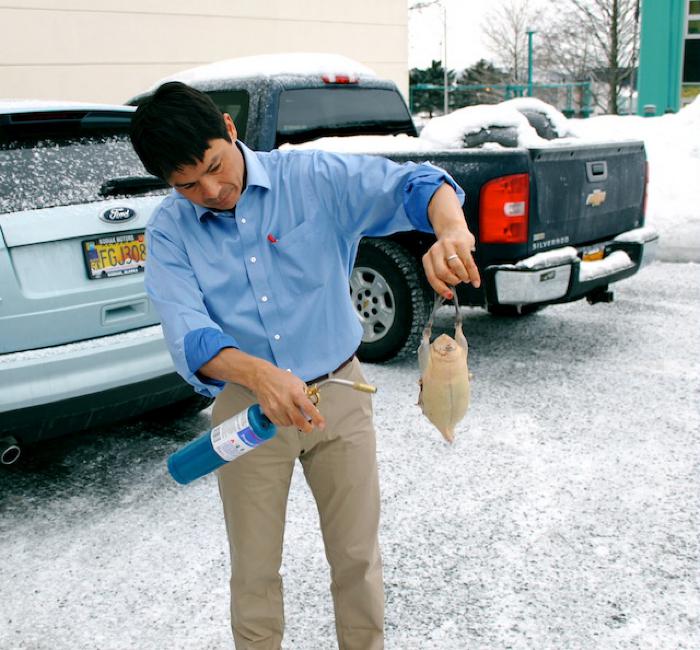Pluck — Meqciluku

The Alutiiq verb meqciluku is commonly used to describe plucking the feathers from a bird. However, it can also mean to pull out hair or fur. This is the verb you would use to describe pulling caribou hair from a hide to use in embroidery or plucking your eyebrows. Similarly, the noun form of this word, meq'arneq, refers to a bare spot—a place where covering is missing. This could be a bald spot on a man’s head or a clearing in the woods.
In Alutiiq society, people harvested some birds for their feather-covered skins. Alutiiq ancestors used the pelts of seabirds like puffins and cormorants to make parkas and hats. In contrast, people hunted ducks for food and plucked them for cooking. Plucked feathers were always saved and they had many uses. Elders remember making mattresses with duck feathers and cotton ticking. You can also start a fire with feathers as tinder!
Alutiiq harvesters begin cleaning a duck by pulling its feathers out by hand. Elders recall long days of plucking hundreds of ducks, working down the body from the bird’s head to its neck, wings, and torso. As they pulled the feathers off, they rubbed the skin with their fingers to remove the down. After plucking, people singe the duck’s skin over a fire to remove any remaining feathers. Today, people often use a propane torch for this important step. Next people clean their birds, washing the skin, gutting, and rinsing again. Next, some people cut their ducks into small pieces for soup. Others leave the meat on the bone for roasting. The last step is to soak the birds in water overnight before bagging and freezing.
